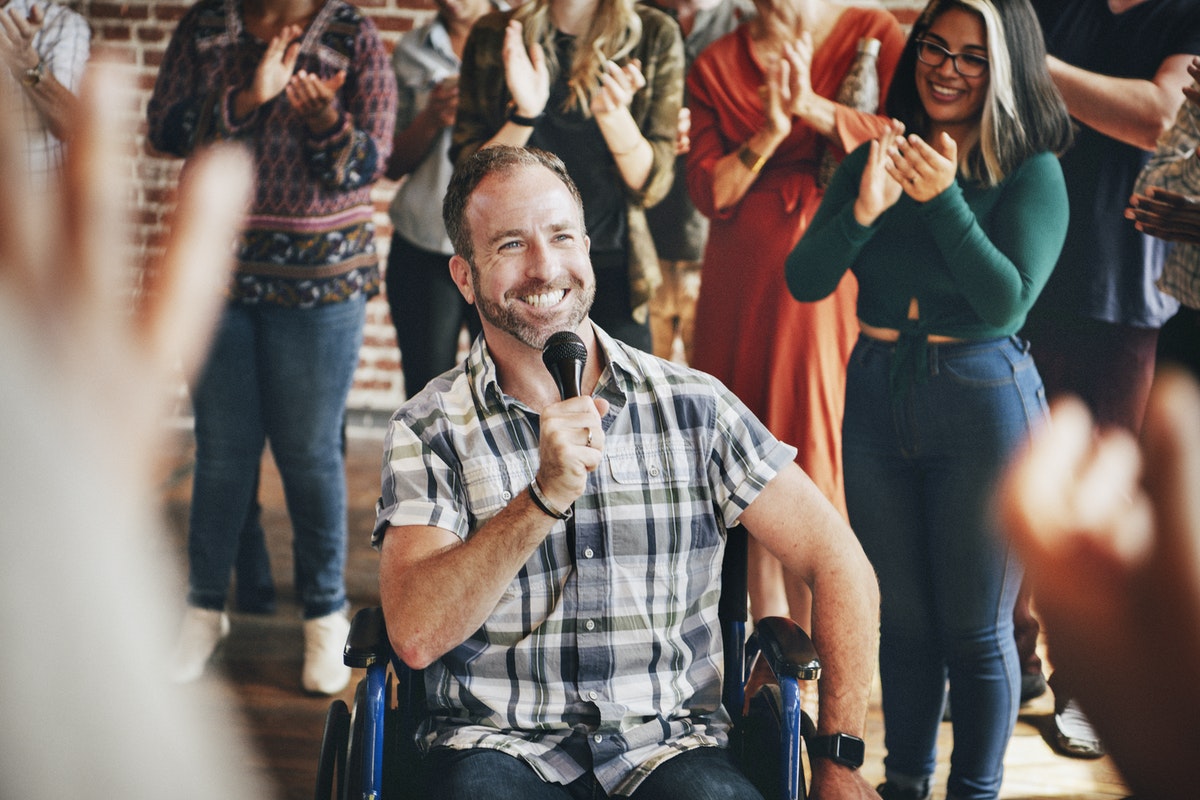Stage Fright Articles
Recent
Popular
Stage Fright is a form of extreme anxiety or phobia linked explicitly to performing. Whether the person is afraid of acting, public speaking, singing or dancing, the fear is the same. Stage fright is a form of social anxiety where the person afflicted feels afraid to be in front of a large audience of people. People with stage fright get similar symptoms to someone who has panic or anxiety attacks, sweaty palms, racing heart, shortness of breath or difficulty speaking. Here you will find articles about the origins of stage fright as well as the signs of symptoms. You’ll read about techniques to combat this devastating form of performance anxiety. There are methods that therapists use to help people to be able to speak freely in front of other people.
Explore more on Stage Fright
Medically reviewed by Melissa Guarnaccia, LCSW
Stage fright generally refers to the anxiety someone feels when they are about to go on stage and perform. Whether they’re speaking, acting, singing, dancing, or doing any other kind of activity that takes place in front of an audience, those with stage fright usually feel an immense sense of discomfort both in the moments leading up to the event and during the event itself. This can be a persistent phobia that is often difficult to overcome without the right tools and support. Here, we’ll explore the meaning of stage fright in greater detail and discuss how you can find help if you’re experiencing this phobia. Online therapy can be one way to receive the professional insight and guidance you deserve.
Does stage fright mean you're shy?
When people hear the term stage fright, they may mistakenly associate it with shyness. Myths like these can underscore the seriousness of the phobia. Although people from all backgrounds and personalities can feel nervous about getting on stage, stage fright is generally more than just shyness.
While shyness may stem from how comfortable or uncomfortable someone is in social settings, stage fright tends to be more concerned with performance anxiety specifically. Other factors, such as perfectionism, may contribute to stage fright, but it is normally a fear that is specific to being in front of an audience in some capacity.
Even famous people can have stage fright, which can mean that the condition isn't due to a lack of talent or even an absence of experience on stage. Many different factors can cause stage fright, but shyness may or may not be a part of it.
Stage fright and social anxiety disorder
Many people feel nervous about speaking or performing in front of a group of people. In fact, public speaking tends to be the most common fear among American adults. However, not everyone has stage fright, which many experts say could be a sub-set of social anxiety disorder.
Social anxiety disorder, or SAD, is usually characterized by irrational anxiety, fear, and distress surrounding social interactions. An individual with SAD may believe that other people are judging them, or they might fear any situation in which they could be embarrassed.
Symptoms of SAD can include heart palpitations, blushing, trembling, nausea, stuttering or stammering, and social isolation. Those with stage fright often experience similar physical symptoms that can make it even more challenging to speak or perform well.
Some people with anxiety may engage in substance misuse or other harmful behaviors to curb their symptoms and how they feel. Having trouble managing your symptoms could be a sign that it’s time to speak to a mental health professional. If your stage fright is comorbid with an anxiety disorder, it can be important to seek help for that condition as well.
Causes of stage fright
People might be afraid to get on stage for a variety of reasons, including the following:
- A lack of confidence in one’s abilities
- Past negative experiences
- Low self-esteem
- Fear of judgment, embarrassment, or audience reaction
- High-stakes situations, such as contests
While there can be many potential causes of stage fright, it can be just as debilitating regardless of its underlying cause. However, with time, support, and the appropriate tools, it is generally something that can be overcome.
Treatment for stage fright
In some cases, stage fright can be worked on by using a variety of self-help methods. These might include:
- Avoiding caffeine and other stimulants
- Being prepared and practicing before presenting or performing
- Choosing positive thoughts
- Living a healthy lifestyle in terms of exercise, diet, and sleep hygiene
- Practicing mindfulness meditation or deep breathing exercises
Sometimes, you may have stage fright leading up to an event and find that it goes away once you get on stage and start speaking or performing. Stage fright can become less impactful over time, particularly if you’re taking steps to overcome it. However, if you’re still struggling, talking to a licensed mental health professional can be helpful.

Benefits of online therapy
If you’re experiencing any level of stage fright, speaking with a therapist can be useful. A therapist can help you understand where your fears might be stemming from and give you the tools and support to overcome them. Making it to in-person appointments may be difficult if you have a busy schedule, but online platforms like BetterHelp may empower you to get the guidance you deserve at a time that works for you. With the ability to use phone calls, video chats, or in-app messaging to speak with your therapist, help can be right at your fingertips when you need it most.
Effectiveness of online therapy
Those who experience stage fright may benefit from receiving anxiety treatment. In a recent meta-analysis examining the effectiveness of cognitive behavioral therapy, researchers found that "both internet-based and face-to-face CBT are equally effective in treating five different anxiety disorders.”
Takeaway
Whether you’re leading a meeting at work, giving a presentation at school, or performing a song or dance routine for a crowd, most of us must get in front of a group of people at some point in our lives. While some people may seem to be drawn to these situations and even thrive in the spotlight, others may have more difficulty, finding that their strengths lie in other areas. Stage fright can be common and is generally nothing to be ashamed of. You can find more information about stage fright and its effects in this advice section. If you’re looking for personalized guidance in overcoming stage fright or another phobia, consider connecting with a BetterHelp therapist.

